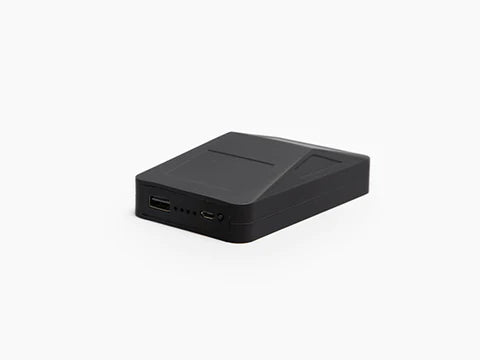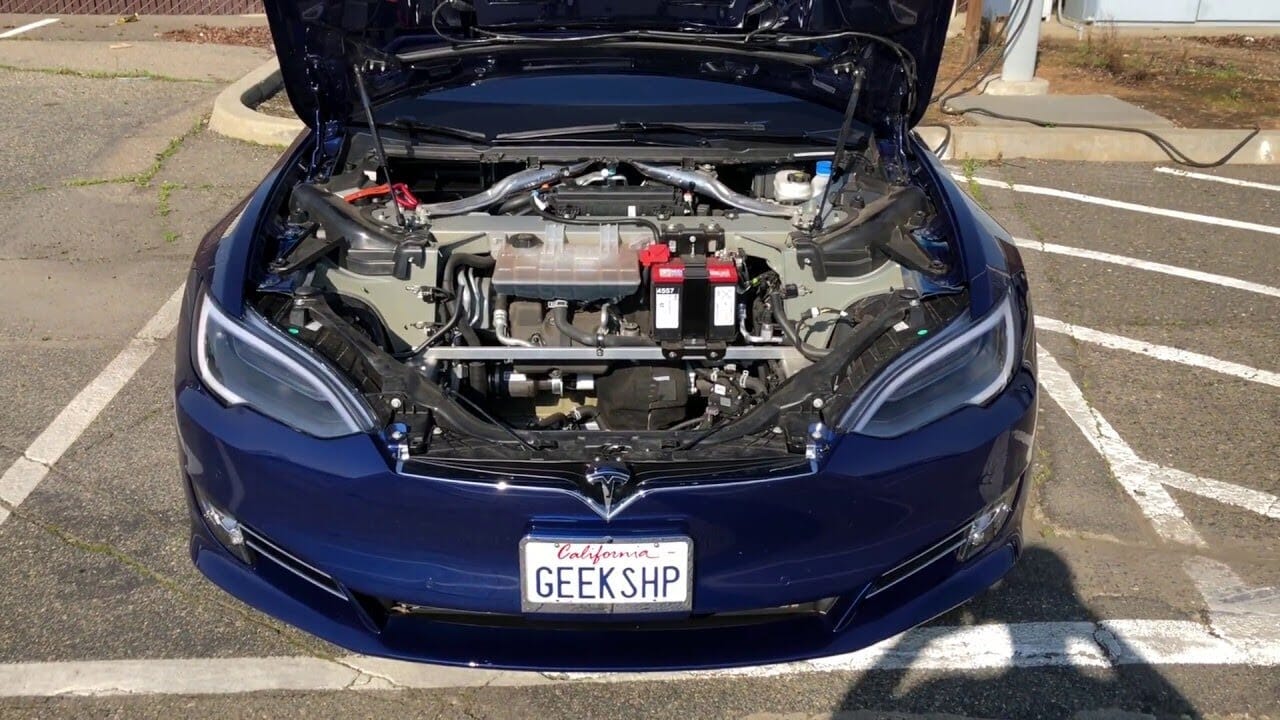Do Teslas need lubricants?
If yes, how often?
Before we dive into this topic, be sure to check out our new Cyberbackpack and Cyberpowerbank combo.
You just got your brand new Tesla and you can't stop staring at it. Then all of a sudden, you begin wondering do Teslas need oil change. It is a great question to ask as you are probably new to the electric vehicle lifestyle.
Tesla electric vehicles' low maintenance needs are one of its primary selling factors. In fact, a lot of Tesla owners might never even need routine maintenance for their vehicles, except for a software update every now and then. Also since the batteries last really long, you won't have to worry about that as well.
However, some basic maintenance tasks, like tire changes, must still be carried out on Tesla cars. Everything about servicing your Tesla, like which components require oil and at what frequency it needs to be changed, is covered here.
Electric Vehicles and Oil Changes
Do Teslas require oil change?

Although electric cars are becoming more and more common, there is some ambiguity on how to maintain them. Whether Tesla vehicles require oil changes is a frequently asked subject. No, they do not; oil changes are not necessary for Tesla vehicles or any electric vehicle for that matter.
This is due to the electric motors that replace gas engines in Tesla EVs. Oil is not required to keep electric motors cool because they are far more efficient as compared to gas engines and produce relatively little heat.
Electric motors require less maintenance generally since they have fewer moving parts in comparison to gas engines. Because of this, Teslas can often require fewer service visits and have lower long-term maintenance costs.
The fact that electric vehicles require significantly less maintenance compared to conventional gasoline vehicles is one benefit of having one. Tesla vehicles aren't an exception. That does not imply that they have no need for any maintenance, though.
Here are the steps you need to take to ensure your Tesla is in good working order. First and foremost, it's crucial to periodically inspect the tires and brakes.
Regenerative braking is a feature of Teslas, which implies that the rotors and brake pads will live longer than they would in a conventional vehicle. Nevertheless, it can still be beneficial to get them examined by a specialist every year or so.
Similar to this, a Tesla's tires need to be regularly inspected for damage. Additionally, it's critical to periodically charge your vehicle's battery. It is recommended to charge your Tesla's battery up to 70% of its maximum capacity every other week.
Last but not least, it can be beneficial to get the car checked out by a licensed Tesla expert every few years. Teslas don't need routine oil changes, but these yearly inspections might help find any possible issues before they get worse. Consequently, keeping your vehicle in good working order for a long time can be ensured by adhering to these straightforward suggestions.
What Tesla Components Require Oil?
Do Teslas need oil?
Yes, they do but not in the typical sense for an ICE engine. If you own a Model X or S, you already know how little maintenance these electric vehicles need. Oil is needed for the lubrication of the few moving parts that an electric vehicle. However, this oil/lubricant application is not needed very often.
Electric Motor
Tesla's electric motor requires oil for lubrication. This allows its moving parts to keep operating properly, just like any other motor. Without lubrication, the electric motor will overheat and stop working.
So, if you own a Tesla, make sure to monitor the motor's oil level and replenish it as needed. The motor will operate for years without any issues popping up with proper maintenance.
Drivetrain
A Tesla's drivetrain is a sophisticated technology that requires oil to operate correctly. The drivetrain's moving components are lubricated with oil, which also ensures the system remains cool and reduces friction.
The drivetrain can overheat if there is not enough oil, which will result in early wear and tear. A shortage of oil can also make the drivetrain run less effectively, lowering range and performance.
It is crucial to routinely check the oil level in the Tesla's powertrain and refill it as necessary because of these factors. Make sure to have your drivetrain evaluated by a skilled professional if you discover leaks or any other issues.
Suspension
A crucial component of any car, the suspension is even more essential in Tesla vehicles. Tesla's suspension system cushions the effect of potholes and bumps while also assisting in maintaining the stability and level of the vehicle.
This system requires oil lubrication so it continues operating properly. The oil breaks down with time and therefore requires replacement.
If you do not do this, it could lead to the suspension wearing out too quickly and needing costly repairs. Although it might sound like a minor maintenance task, maintaining the smooth operation of your Tesla depends on changing the oil of the suspension system.
Brakes
Electric vehicles are frequently thought of as low-maintenance and simple to take care of. However, an electric vehicle still has some components, such as brakes, that require routine care and upkeep. Every 12,500 miles or a year, your Tesla brakes should be serviced.
The brake rotors and pads are examined for damage during service. The rotors are refinished and the braking pads are changed if necessary. Brake fluid is also drained and changed out with new fluid. Regular brake maintenance will assist to guarantee that your EV stops securely and smoothly.
Tires
Any car, including Tesla vehicles, needs tires, thus they are a crucial component. Tesla vehicles don't need to have their oil changed, although they do occasionally need maintenance and tire rotations. That's because your car's tires are what touch the road. They are in charge of keeping you secure and at ease while you are driving.
Tires can deteriorate and experience flat areas or other problems over time. Because of this, it's crucial to get them checked frequently as well as rotate them if required. Therefore, if you are a Tesla owner, make sure to include tires in your list of routine maintenance tasks.
Why Do Tesla Vehicles Not Require Oil?
Since Tesla vehicles are all-electric, they lack combustion engines. That implies that there will never be a need for oil changes. Despite existing for more than a century, electric automobiles have only lately gained popularity as a result of advancements in battery tech. Electric motors transform the stored energy from electrical to mechanical energy. This is what makes the wheels turn.
Because they do not lose energy as heat, electric vehicles are far more efficient as compared to gasoline-powered vehicles. Due to the fact that they don't emit any pollutants, Tesla cars are also significantly more environmentally friendly.
The sole sources of emissions are the factories where they are manufactured that produce electricity, but even these emissions are considerably less than those produced by gasoline-powered vehicles.
Therefore, you never need to bother about oil changes when you have a Tesla. Your vehicle will be in good shape if you just pay attention to the brakes and tires. You can also refer to the owner's manual to get more information on care and maintenance if you have any questions.
Final Thoughts
Oil changes, which are frequently necessary for conventional gasoline-powered automobiles, are no longer necessary for Tesla's vehicles, according to the company. Some have questioned whether Teslas even require routine maintenance in light of this announcement.
While oil changes are not necessary for Teslas, specialists have confirmed that they still need other types of routine maintenance. Therefore, if you're thinking about buying a Tesla, make sure to account for the expense of scheduled maintenance.
The video below can provide more insights into whether Teslas need oil changes.
Be sure to check out our definitive guide to owning a Tesla.












